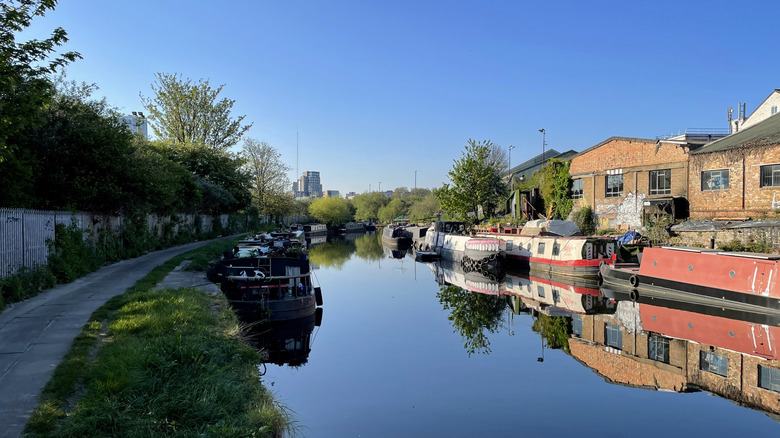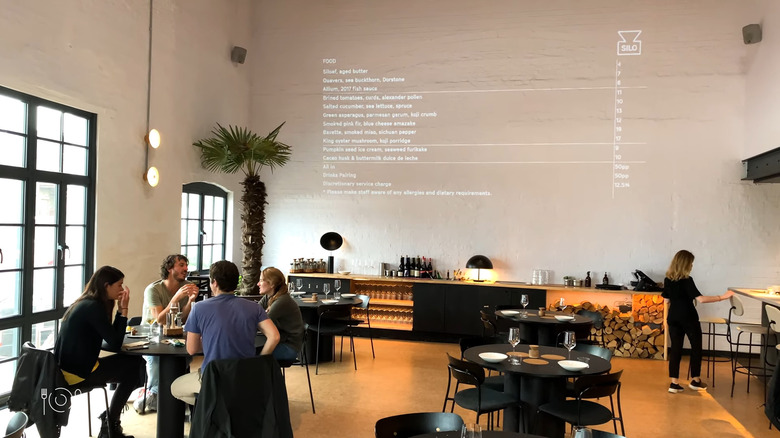The World's First Zero Waste Restaurant Is A Mouth-Watering Marvel Of Sustainability In Europe
Tucked away in East London's Hackney Wick lies a restaurant that's redefining sustainability: Silo, the world's first zero-waste restaurant. An extraordinary feat in modern dining, Silo has eliminated a staggering 95% of its waste, exceeding the qualification to attain the zero-waste label. So head to this eco-friendly gem for a delicious meal after spending a day immersing yourself in the art scene of East London's trendy neighborhoods or sightseeing at some of London's best free spots for skyline views.
You'll see that Silo's culinary experience is as innovative as its ethos. The restaurant serves a set tasting menu, which guides diners through a series of dishes designed to showcase bold, creative flavors. Some highlights from the menu include Smoked Crown Prince pumpkin, bursting with earthy sweetness, and venison with caramelized cream, an indulgent dish that perfectly balances richness with complexity. Paired with a cozy, rustic interior crafted from recycled materials, Silo offers an unforgettable experience for food lovers and sustainability enthusiasts alike.
Silo's recipe for zero-waste innovation
What makes a restaurant truly "zero waste"? To achieve this status, restaurants must prevent at least 90 percent of waste from ending up in landfills. This means everything — from food scraps to packaging — is carefully considered. Techniques like sourcing fresh produce to cut down on plastic, using reusable containers, and recycling materials are essential. Reducing waste in restaurants is a crucial move for the environment. As Andrew Stephen, CEO of the Sustainable Restaurant Association, told Smithsonian Magazine in 2020, "With ... food waste globally accounting for 8% of greenhouse gas emissions, the environmental case is compelling."
Silo's leaders were compelled earlier than most, and they took their commitment seriously, finding ways to eliminate 95 percent of waste. Originally launched in Australia in 2011 before relocating to London, Silo is the brainchild of chef and owner Douglas McMaster. His culinary philosophy is simple yet profound: "It's a marvelous metamorphosis and a demonstration that waste is a failure of the imagination," McMaster told Michelin Guide. This creative mindset is evident throughout Silo, where even the furniture makes a sustainable statement — tables are crafted from sustainable ash and recycled plastic packaging, while some stools are made from mycelium, the fibrous root of fungi.
As McMaster explained in the Financial Times, "My vision, core to Silo, is to work with nature." Ingredients are sourced directly from local farmers to minimize waste, and the restaurant mills its own flour for bread, aptly naming the resulting product the "siloaf." A fermentation factory on site produces ingredients like soy sauce and miso from koji, a process that captures every ounce of flavor while reducing food waste.
Culinary creations with an eco-conscious twist
Silo's set tasting menu, priced at about $94 per person, takes diners on a journey through inventive dishes made with the freshest local ingredients. For a lighter experience, a shorter version of the menu is available for $56 per person until 7 p.m. or during Saturday lunch. Vegan and vegetarian substitutions are available for any meat-based dishes. The set menu structure not only curates a seamless dining experience but also reduces the risk of unsold items going to waste. Adding a modern touch, the menu is projected onto the back wall of the dining room.
Dish offerings have included flavorful cosmic beetroot meat paired with yogurt and tart pickled blackberries. For the main course, options have included baby oyster mushrooms served with koji porridge or the indulgent venison with caramelized cream and wild garlic capers. Often, meat used in Silo's dishes comes from cuts that might otherwise have gone to waste. The cuts are transformed into something delicious through inventive techniques, like braising the meat at length.
Ingredients are frequently reused from previous menus, ensuring that nothing goes unnoticed or unappreciated. What can't be reused is composted, ensuring that little ends up in the trash. Silo proves that sustainability doesn't have to come at the cost of creativity or flavor, making it a must-visit for anyone seeking a dining experience that's as sustainable as it is delicious. While you're exploring Europe's eco-conscious side, be sure to also check out Copenhagen, another popular European city that rewards eco-friendly travelers.


